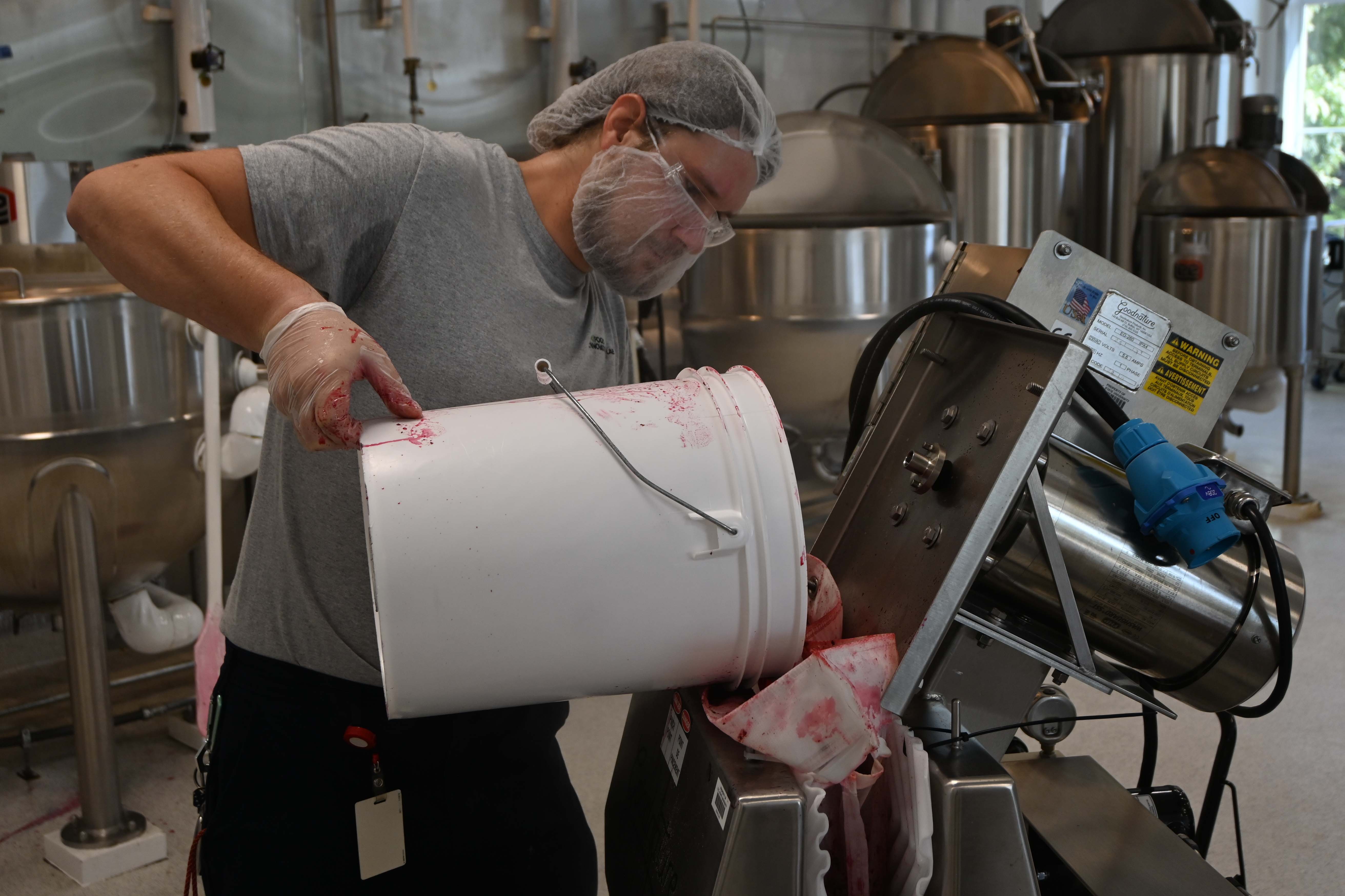Does an apple a day keep the cardiologist away?
Published 12:00 am Wednesday, October 17, 2012
By Katie Scarvey
kscarvey@salisburypost.com
KANNAPOLIS – “Let food be thy medicine and medicine be thy food.”
The UNC Nutrition Research Institute is reminding us that these words of Hippocrates are still relevant.
Recently, Sheau Ching Chai, a researcher in the Cheatham Nutrition and Cognition Lab at the NRI, spoke about “functional foods” that can help prevent or reduce the risk of cardiovascular disease.
And as it turns out, an apple a day – or 2.5 apples to be exact – really can help keep the doctor away. She also cautioned that avoiding eggs is not necessarily the way to go for someone worried about blood cholesterol levels.
Chai pointed out that in this country the leading cause of death is cardiovascular disease, which costs us many billions per year in health care costs. After the age of 40, the risk for heart disease is roughly the same for women as for men. (After menopause, cardiovascular disease kills 10 times more women than breast cancer does.) Risk factors for cardiovascular disease are excess weight, inactivity, high blood pressure, high cholesterol, smoking and diabetes.
Hypercholesterolemia, or high blood cholesterol, is a major risk factor in the development of cardiovascular disease. Chai noted, however, that about half of the people who die of cardiovascular complications never experience hypercholesterolemia.
Current guidelines state that a desirable cholesterol level is less than 200, with more than 240 considered high.
But Chai pointed out that research has shown that high dietary cholesterol isn’t necessarily associated with high blood cholesterol levels. It may be surprising to people that in 1978, the average dietary cholesterol intake was 381 mg per day. In 2000 that had decreased to 265 mg. per day. People became “more concerned about cholesterol than overall health,” Chai said and began limiting foods, like eggs, that provide essential nutrients like choline. Dietary choline suppresses the production of proinflammatory molecules, which have been implicated in Alzheimer’s disease, cancer, stroke and cardiovascular disease, Chai says.
And research suggests that more than 90 percent of Americans are deficient in choline.
Getting plenty of choline can protect against chronic diseases, she added.
Have eggs gotten a bad rep?
Chai’s research has shown that in postmenopausal women, there is no significant relationship between cholesterol intake and the risk of heart attack. In fact, higher egg consumption is actually associated with a lower cardiovascular disease modality, she said. It is worth noting that while eggs are high in cholesterol they are low in saturated fat.
Chai says she’s not necessarily advocating eating a large quantity of eggs but suggests that they are not the cholesterol culprit they’ve been made out to be, and that people need to look at the big picture of overall health. She suggests that limiting intake of saturated fat may be more beneficial than strictly limiting consumption of potentially beneficial foods like eggs. The NRI is currently pursuing research on whether eating eggs affects markers of heart disease.
Don’t upset the apple cart
Chai also explained that research has shown that eating apples has a protective benefit. While at Florida State University, Chai did a study on how the consumption of dried apples affected post-menopausal women. Apples, Chai said, are a rich source of soluble fibers, especially pectin, and dietary fiber lowers cholesterol. Pectin, Chai said, can “significantly reduce total cholesterol.”
In the study, the consumption of about 2.5 apples daily over a six-month period of time reduced cholesterol by about 14 percent. Not only did so-called “bad” cholesterol decrease in the apple-consuming group but”good” (HDL) cholesterol increased.
Those in the study consuming apples also reduced inflammatory markers and oxidative stress markers significantly.
Apples also contain a variety of phytochemicals, including quercetin, catechin, phloridzin and chlorogenic acid – all strong antioxidants that can inhibit cancer cell proliferation. (Only one fruit has higher antioxidant activity, and that is the cranberry.)
To simplify, “apples keep cardiologists away,” Chai said.
Chai also recommended flax seed as a functional food that is a rich source of fiber, omega-3 fatty acids and lignans.
Flax seed has been shown to improve lipid profiles, reduce atherosclerosis formation and prevent cancer and diabetes in animals, she said.
In a study, three months of flaxseed consumption reduced cholesterol by about 7 percent.
Watermelon is also emerging as a functional food, Chai said. It is a rich source of citrulline, which is an effective precursor of arginine, an important amino acid that can help prevent cardiovascular disease.
Blueberries are another functional food that help protect and strengthen cells in the body, lower the risk of heart disease, control blood sugar levels, decrease bad cholesterol and blood pressure, among other things.
But she also cautioned that cooked blueberries do not provide the same benefit, so enjoy your berries by the handful or in a fruit salad and not in a pie.
The Nutrition Research Institute is still recruiting adults 65-79 for a blueberry study that will look at how ingestion of blueberries can affect mild cognitive decline. For more information or to enroll, call 704-250-5018 or e-mail feedingbrains@unc.edu.





